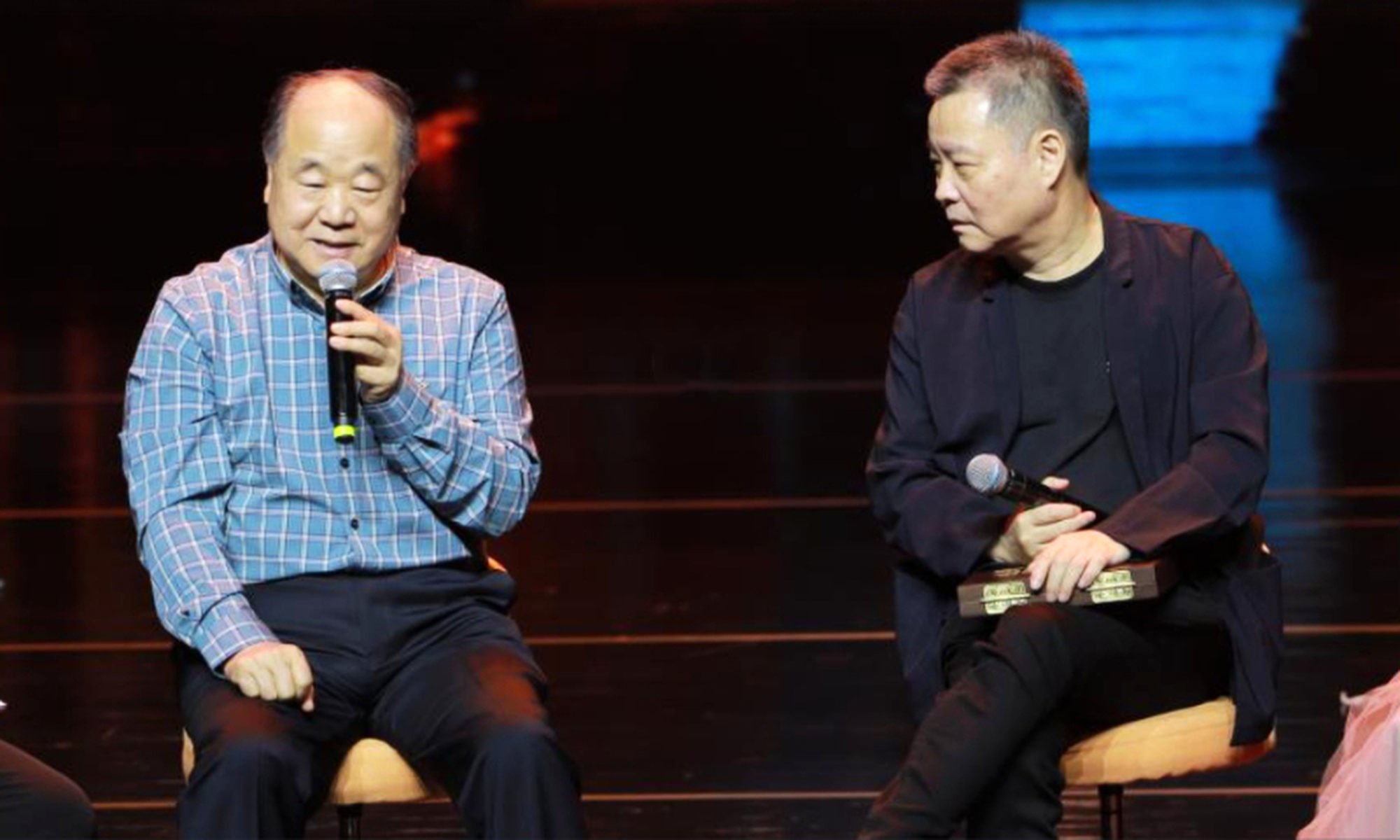
‘Somebody may call the police’: Chinese Nobel Prize winner Mo Yan turns to ChatGPT to beat writer’s block
- Literary giant known for Red Sorghum reveals AI chatbot helped him craft speech for fellow author Yu Hua, but he stresses his novels are his own work
- The admission sparks discussion on social media, with many praising him for being open-minded about tech tools and others warning him to get a lawyer
Mo was set to present Yu with a book award at the Shanghai Dance Centre during the 65th anniversary celebration of Shouhuo, a magazine that has played a significant role in shaping the landscape of Chinese literature.
The air was thick with anticipation as the two literary luminaries, both friends and rivals, took the stage.
“The person who is receiving this award is truly remarkable and, of course, he is also my good friend. He is extraordinary, so I must be too,” said Mo, who is known for novels such as Red Sorghum, The Garlic Ballads and The Republic of Wine.
“A few days ago, I was supposed to write a commendation for him as per tradition, but I struggled for several days and couldn’t come up with anything. So I asked a doctoral student to help me by using ChatGPT.”
China announces first known ChatGPT detention over fake train crash news
There was an audible gasp from the audience when the Nobel Prize winner, known for his vivid depictions of rural life in China, admitted his praise for Yu had been crafted with the help of the AI chatbot.
Mo said he gave his student a list of key words including the titles of two of Yu’s books, To Live and Wencheng, as well as the phrase “tooth extraction” – probably a reference to the fact that Yu once worked as a dentist.
It is not clear exactly how ChatGPT was used, but it is likely that the doctoral student entered the phrases into the system, which then generated text based on the prompts.
“In an instant, [ChatGPT] generated over a thousand words of Shakespearean-style praise,” Mo said.
Chinese patriotic trolls are hating on writers and that’s worrying
Mo is the first Nobel Prize winner to publicly admit using AI to help with writing. But he stressed that he had written all of his novels himself and said he was likely to continue doing so because he enjoyed the power of writing.
“When you are writing, you are one person, and when you put down the pen, you are another person,” he said. He added that writing allowed him to explore different identities and perspectives, often in a way that was better than reality.
Yu, who did not directly comment on the use of ChatGPT, challenged Mo on this point, saying that while literature could provide insight into the human experience and offer a way of exploring complex issues, it was ultimately limited by reality.
“Literature cannot surpass reality, and reality will always be broader than literature,” said Yu, whose novels typically deal with the struggles of ordinary Chinese people and the impact of political and social change on their lives.
Both writers emerged in the 1980s and 1990s as part of a new generation of Chinese authors who explored new themes and styles. They are associated with the literary movement known as “scar literature”, which focuses on the trauma and upheaval of recent Chinese history.

Video footage of the event soon appeared on Chinese social media, sparking a lively discussion. Many were impressed by Mo’s openness to exploring new technologies and tools to aid the creative process and expressed optimism about AI’s potential to help writers generate ideas and refine their work.
But a few Weibo users suggested Mo and his peers should consult a lawyer before using ChatGPT.
OpenAI, the developer of ChatGPT, has not yet made the service available in China. Some commenters said it was possible Mo had violated OpenAI’s terms of service by using the platform in China, and they warned this could result in legal action being taken against him by OpenAI. The Post has reached out to OpenAI for comment.
The Chinese government has also banned the use of VPN software, which is needed to access ChatGPT from China, as a means of controlling access to information deemed inappropriate or sensitive. If Mo Yan or his student were caught using a VPN to access ChatGPT, they could face penalties such as fines or imprisonment.
“Somebody may call the police,” one Weibo user said.

